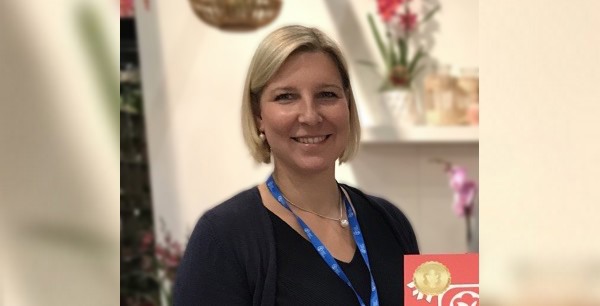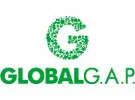Introduced in 2017, the GGN Label of GLOBALG.A.P. is quickly gaining traction in the floriculture industry. Currently, this label that creates a direct link between the farm and the consumer, has 415 profiles online and is expected to grow even faster in 2021 as, earlier in the year, they introduced an opt-in on the producer level, allowing producers certified under an equivalent benchmarked scheme to also use the GGN label. Furthermore, in 2021, the GGN label will focus on the recognition of social modules in the FSI social basket for the use of the GGN label, which will further avoid duplication for producers.
 Sarah von Fintel GGN Label Floriculture Commercial Manager, GLOBALG.A.P. c/o FoodPLUS GmbH
Sarah von Fintel GGN Label Floriculture Commercial Manager, GLOBALG.A.P. c/o FoodPLUS GmbH
Direct link between consumer and farms
The label can be used on pot plants, flower or plant arrangements, flower bouquets, and Christmas trees, but what does it stand for and how does it work? In short, it is a visible labelling for products from responsible cultivation and provides a direct link, and therefore transparency, between the consumer and the farm, explains Sarah von Fintel, GGN Label Floriculture Commercial Manager. "The label comes with a GLOBALG.A.P. Number (GGN), a 13-digit identification number or a QR-code which is assigned to each producer or producer group with a GLOBALlG.A.P. certification or a certification of an equivalent benchmarked scheme. When filling in the number at the online portal www.ggn.org or scanning the QR-code, the consumer will be redirected to the respective farm profile at the GGN Label Platform that provides more information on the farm's size, location, age and website."
Why the GGN Label?
Why should a grower, packer or retailer choose for the GGN label? Von Fintel: "The label is a tool to increase and cement trust. The retailer can decide to use it to demonstrate their strong commitment to ensuring the best quality for their customers by buying and selling flowers and ornamentals from GLOBALG.A.P. certified production processes. On top of that, it makes products stand out from the competition and shows their commitment to responsible cultivation. Also for the growers, using this label means extra promotion as they will be featured in the GGN Label platform . On top of that, they all can benefit from promotional material that they can share with their customers, like visual material, point-of-sale leaflets, text proposals for their website, and so on."
Requirements
In order to use this GGN Label, the grower has to comply with two requirements. First, it needs to have a GlobalG.A.P. IFA certification or a certification of an equivalent benchmarked scheme . On top of that, a GRASP Assessment with the status of full compliance is needed. When looking at the suppliers side, the whole supply chain must be GLOBALG.A.P. CoC certified. In any case, the company that is responsible for the labelling of the product needs to sign a license agreement with GLOBALG.A.P. in order to get the permission to use the GGN Label. This may either be that grower or the supplier.
What does it cost?
For GLOBALG.A.P. certified producers, suppliers and retailers, there is no extra fee charged to use the GGN label, as it is already included in the producer registration fee producers pay together with their annual certification costs. Only for the producers of equivalent benchmarked schemes, a participation fee is asked. But how is it calculated? "First, these system participants are asked to sign a contract with GLOBALG.A.P., then we calculate an annual fee, based on the certified surface, according to the GLOBALG.A.P. fee table. Thirdly, a 20% administration fee is added and 100 euro flat fee for B2B Benchmarking is being substracted."
Increasing interest
The label was introduced in 2017 only and has gained a lot of interest over the last 3 years. Currently, the label has 11 retail partners and 415 profiles online. The numbers are expected to increase even further in 2021 and this year, they will also focus on the recognition of social modules in the FSI social basket for the use of the GGN label. "This will further avoid duplication for producers."
For more information: GLOBALG.A.P
GLOBALG.A.P
[email protected]
www.globalgap.org
